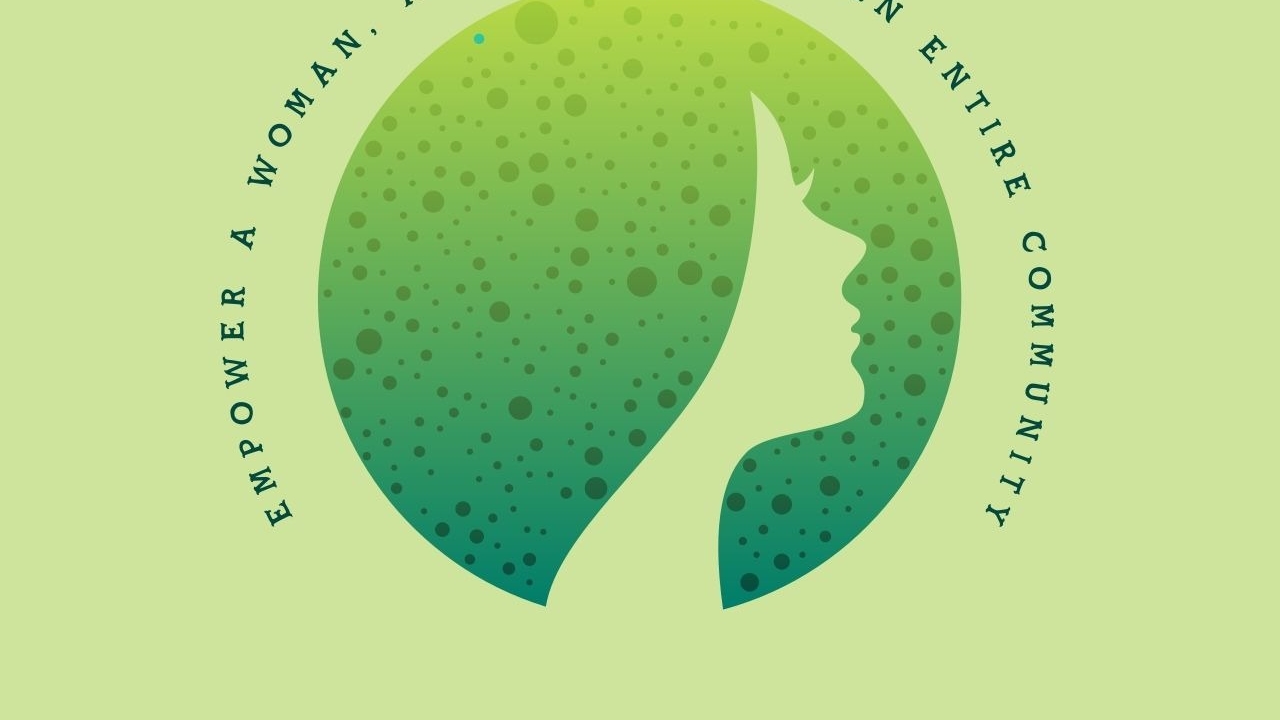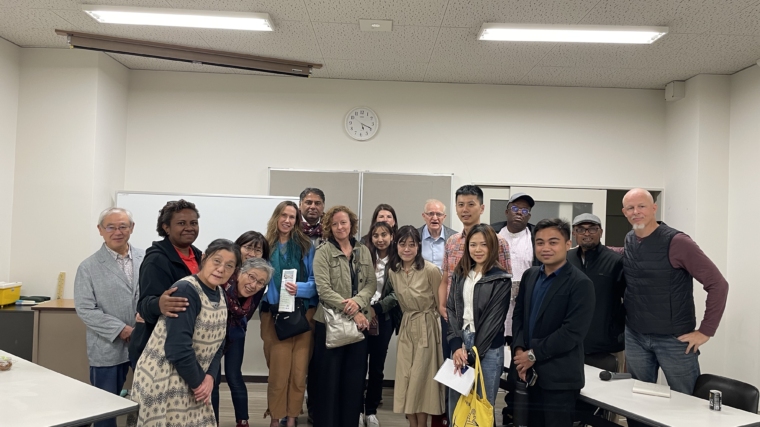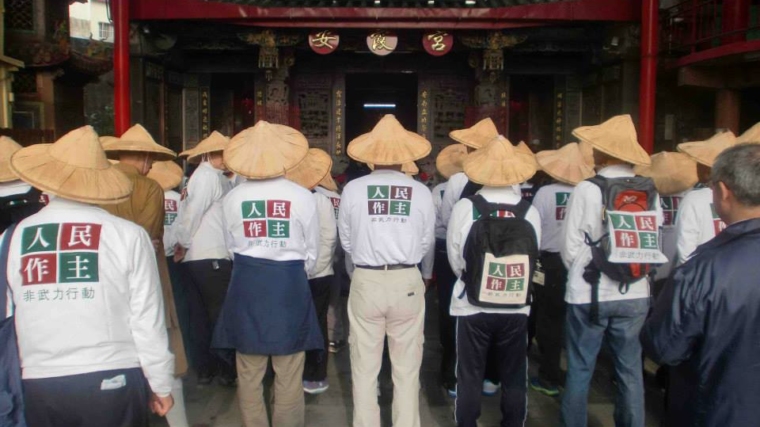Promoting Alternative Livelyhood Models by Spreading Sustainability
by Linus Dolfini
Bangkok, July 17, 2025
Dr. Geetha is a member of our Eco-Temple network, who is based Pondicherry, Tamil Nadu, in South India. In 2025, she began developing her own initiative to support women by introducing them to alternative sources of income. The goal is to help women by introducing them to ways of manufacturing sustainable products instead of working for exploitive large companies. Currently, Dr. Geetha is doing the groundwork to build up her own organization, which will focus on the needs of women and promote environmental entrepreneurship.
These days, in June 2025, she is traveling around Tamil Nadu to visit different people from local villages who are also working on establishing independent sustainable production units. Dr. Geetha is gathering data about their activities, their socio-economic perspectives and how they can be improved. During her research she focuses on visiting different production sites to find out more about the different procedures. Sustainable production normally tries to make use of agri-waste – organic waste. The women who are leading these local initiatives are collecting different kinds of organic waste – for example banana leaves – reprocess them and use them to create different products such as teacups, plates, spoons, vessels and so on. No chemical components, including plastics, are used at any stage of the production process. Making sure that the products are 100 percent organic is at the heart of these initiatives.
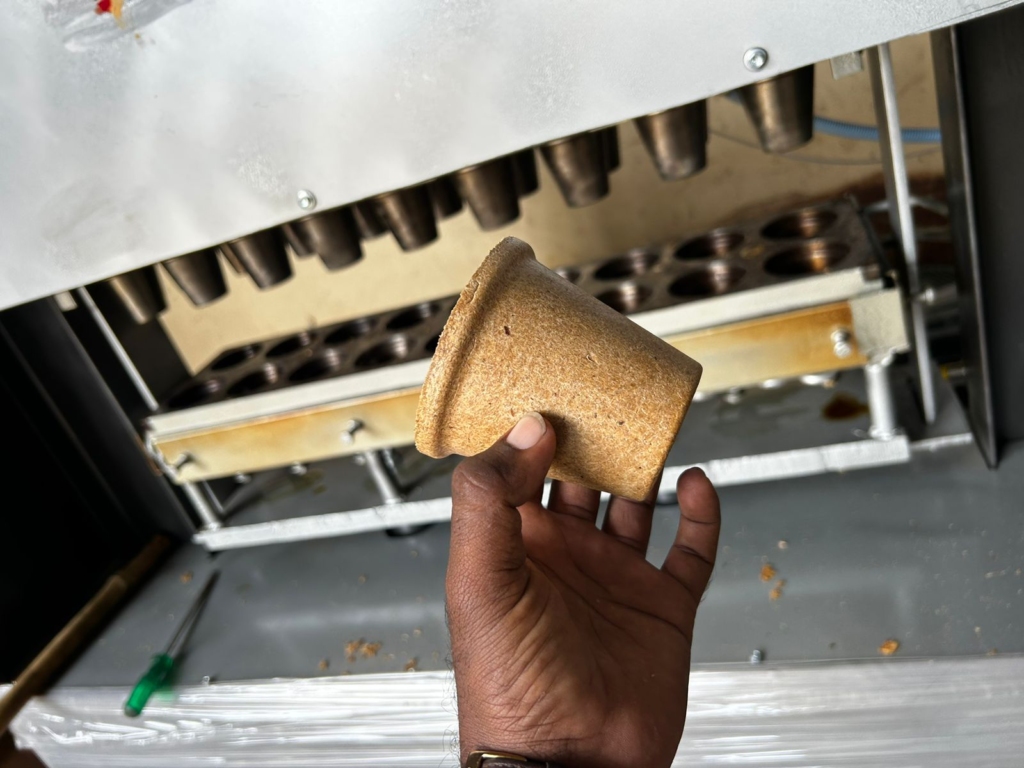
Dr. Geetha is researching how women’s economic status can be improved by engaging them in sustainable forms of production. The data she has collected and the contacts she has created serve as the foundation on which her new organization will be built. The goal is to establish an organization, that is focused on introducing underprivileged women to these sustainable activities and through that granting them access to different job opportunities. Dr. Geetha further wants to organize awareness programs in educational institutions to introduce young women to sustainability concepts, eco-friendly production, and alternative livelihood models.
Raising awareness among women about eco-friendly products is the first step in order to then offer them alternatives to employment in the commercial sector. Hence, it is important to highlight the advantages of this alternative line of work, such as the health benefits coming with it. In Tamil Nadu many people are employed at large chemical companies. Working there often causes serious health hazards. Entering eco-friendly production units instead is much safer for the women and will also grant them more freedom and independence. Dr. Geetha’s approach begins with raising awareness by providing training and education for the women. Once they have built the necessary capacity, they can become actively involved in the organization themselves. The organization will be team-based, rather than being organized in a strictly hierarchical way, so everyone can be involved according to their abilities.
While being in contact with women on the ground who are active in sustainable production units, Dr. Geetha found there are two important factors to consider. Firstly, the women who are working for the chemical companies earn more. Leaving their current work is difficult, as it often requires them to sacrifice part of their existing income. Especially middle-aged women seem to face economic struggles, often suffering from financial debt, which pushes them into an unhealthy work environment. Secondly, the companies are in some instances exploiting the women, forcing them to work 12-hour shifts, night shifts and so on. Hence, the women do not actually want to work in these places, but due to family circumstances and financial constraints, they have few other options. Therefore, it is all the more important to establish alternatives and offer them to women who are interested.
When introducing eco-friendly production to women unfamiliar with it, Dr. Geetha often hears the same concerns: Who will buy these products, and how will they generate income? She explains, that in India normally, middle, and lower-middle class people will not go for eco-friendly products, because of the cost issues. So, in terms of marketing, it is necessary to target upper middle class and rich people who are able to afford these eco-friendly products. Some opportunities also arose due to the Tamil Nadu government’s decision, to ban plastic in certain tourist areas. These areas can be targeted, because there is a demand for organic substitutes to plastic products.
Overall, the new organization is still in its early stages, with no official name or physical center established yet. However, Dr. Geetha states, that she is planning to locate it on her own piece of land in Pondicherry. Regarding the name, she explains that she would like to include the name of Savitribai Phule. Savitribai Phule, born in 1931, was an Indian educator, poet, and social reformer, who played a crucial role in advancing women’s rights and education. She was a dedicated activist and feminist leader and eventually became the first female head minister in India. Dr. Geetha explains that, inspired by Savitribai Phule’s work, achievements, and the motivation they provide, she wants to associate her organization with her name.
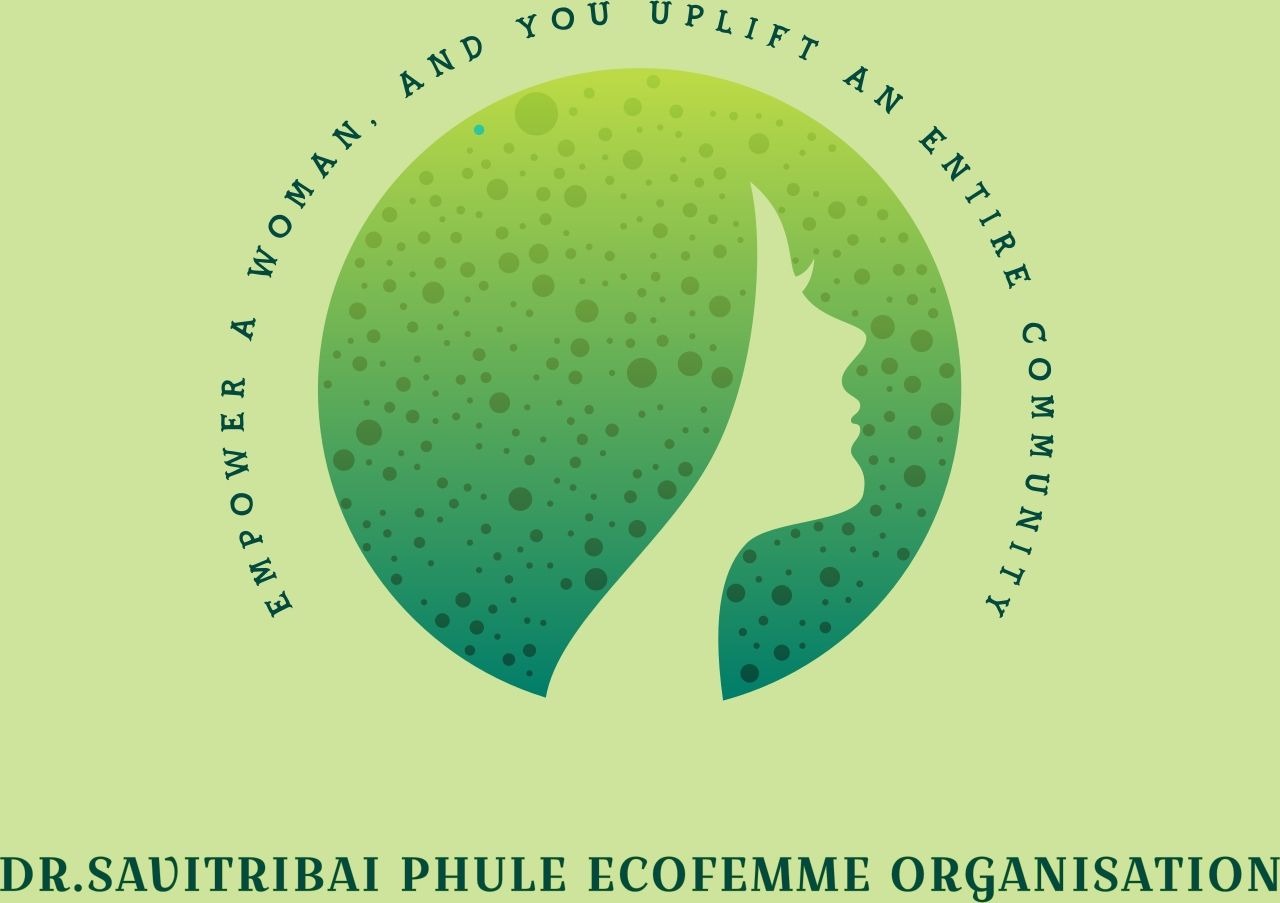
For Dr. Geetha pursuing this engagement and building her own organization also means to be independent and creating something based on her personal principles. Finally, she mentions that having an organization which focuses on women’s needs and issues and is run by women as well, will offer significant benefits to everyone involved.

